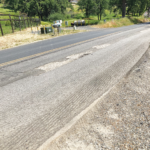
Hands tied, school board struggles with state mandates
Confusion, contention, conflict, hostility, and politically-fired feuding have become the trademarks of school board meetings all across the state of California. Many believe that the edicts from the state are legalized indoctrination of students, from elementary school through high school.
Most wonder how any of the topics concerning gender and the issues related thereto fall under the purview of the educational process.
The state, legislatively, has dictated that certain information regarding a student’s gender identification or gender expression is the student’s private information. The regulations under the Nondiscrimination-Harassment regulations state: “Right to privacy: A student’s intersex, nonbinary, transgender or gender-nonconforming status is a student’s private information. The district shall develop strategies to prevent unauthorized disclosure of student’s private information. Such strategies may include, but are not limited to, collecting, or maintaining information about student gender only when relevant to the educational program or activity, protecting or revealing a student’s gender identity as necessary to protect the health or safety of the student, and keeping a student’s unofficial record separate from the official record.”
School boards, including the elected board members of the Mariposa County Unified School District (MCUSD) have no latitude in the application of this policy, which carries the force of law. They can agree with the law or vehemently dissent, but they are legally obligated to follow this decree, passed down through the state board of education.
Of course, these directives are being challenged in court. The Chino Valley Unified School District spearheaded this effort when it altered its “parental notification” policy early last fall, sparking a lawsuit by California Attorney General Rob Bonta. That case is undecided, and the parties return to court in February.
As the law stands, the students control the information, except for their official record, as to whether their parents will be notified about their gender identity. In the same document, the regulation states, “As appropriate given the student’s need for support, the compliance officer MAY discuss with the student any need to disclose the student’s intersex, nonbinary, transgender or gender non-conformity status or gender identity or gender expression to the student’s parents/guardians and/or others, including other students, teacher(s), or other adults on campus. The district shall offer support services, such as counseling, to students who wish to inform their parents/guardian of their status and desire assistance in doing so.”
Many parents stand passionately against this rule, believing it denies their parental rights.
Actually, parental notification falls under a completely different function of the school system. The school district is required to advise parents and students of different policies or changes to policies annually. Parental notification can be something as simple as announcing a field trip and the requirements to participate.
The rules regarding parental notification that fall under the Nondiscrimination-Harassment Policies are the bone of contention.
According to the existing law, the compliance officer, who is selected by the school district, and the student, are in complete control of all information regarding the student’s gender selection and with whom that information is shared. The school board has absolutely no ability to vary or revise policies as dictated by law without being exposed to legal ramifications, whether from parents or the state.
A legal solution to the issue, which is currently being litigated, will probably be a long, drawn-out dogfight, littered with politically-charged perspectives. Such a polarized issue will also certainly land in the lap of the U.S. Supreme Court since the decision could echo across the landscape of the entire country.
Two local residents, Brian Moore, an experienced missionary and charter school educator who has lived in Mariposa County since 1999, and Daniel Latner, who was at the forefront in establishing a Facebook group named “Parents Voice for a Choice” during the Covid 19 pandemic, have both been outspoken on the policies that have been foisted upon the local school district by the state.
Moore, who firmly believes in the phrase “If you don’t stand for something, you’ll fall for anything,” a quote usually attributed to Alexander Hamilton, told The Mariposan, “There’s a whole different level of the trans campaign. We tend to be pretty short-sighted, but socially this is a total disaster. Other countries have experimented with this, and they all got over it as they’ve seen the disastrous results. All the evidence is out there, but they keep pushing it.”
Moore sent letters outlining his distress to four local pastors following the school board meeting held in November. To date, none of them has responded directly, according to Moore.
When asked, “Why has the church backed off of its responsibility,” Moore responded, “I think it’s part of the theology that has come into the churches that the church is supposed to be submission to the government. I think the Apostle Paul mentions that (in the Bible). It’s also a lack of understanding the Judeo-Christian values established throughout American history. Our history was not founded to keep the faith out of the state, but to keep the state out of the church, and that’s where this whole thing about the separation of church and state comes in.”
Moore added, “There are so many battles that we think we need to kind of hunker down and just live our lives, but this is something we could do on a local level and make a difference. We need people just to show up, so their presence displays that we want what’s best for this community. We need to change course on this thing in Mariposa. It is time for the churches and all believers to stand for what we believe in. Stand up, regardless of how uncomfortable it is. If we don’t, we’ll suffer the consequences. God put us here for a reason and it wasn’t to sit on the sidelines.”
Latner told The Mariposan, “I don’t think a lot of parents are aware of the whole transgender issue in this school district, and this is one of the better school districts. I think the board is afraid of getting sued and afraid of losing funding. Individually, I don’t doubt their allegiances. They are doing what they think is right, but they focus too much on funding instead of what’s right for the students. That’s my opinion.”
Another new state guideline, that as of yet does not bear the force of law, addresses the open discussion of religion in a science class. This clearly appears to be a matter concerning the First Amendment, and potential infringements of the Establishment and Free Exercise Clauses of the U.S. Constitution.
The state guideline states, in short, “There are divergent views regarding scientific fact, hypotheses and theory as these items are used in natural science and defined in this policy. Philosophical and religious and scientific theories that are based, at least in part, on faith and are not subject to scientific test and refutation SHALL NOT be discussed and considered during science discussion.”
This guideline recently came to the attention of the school board. A discussion in an open format is scheduled for the January 25 board meeting.
The members of the MCUSD are Robert Hill, Kimberly Harper, Bob Morse, Jennifer Kiser, and Bob Collins. Their contact information is available at mcusd.org.
Three of those positions will be up for election at the end of 2024. District 5 representative Collins has expressed that he won’t be running for reelection. Kiser, who represents District 4, is apparently bound for the county’s board of supervisors, and Harper, the representative for District 2 has not announced if she will seek a return to the MCUSD school board.


















